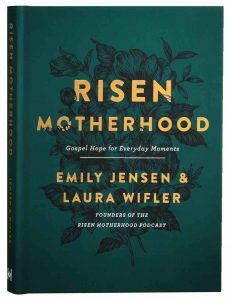This week, Bible Studies will resume across the country for the New Year. As they kick into gear, it is important to take a moment to think about the small group studies that operate in your church and the church-at-large. As the days turn into weeks, which turn into months, how do we ensure our Bible studies are invigorating, encouraging and helping our spiritual life thrive? In the culture in which we find ourselves, we have greater access to information than ever before yet our attention spans are shortening. We want soundbites over study, quick application over rigorous development and connection over instruction. Soole exhorts, “we are at a critical time; a time when we have never had better access to God’s Word yet spend less and less time reading it.”[1]Karen Soole, p.3. “Unleash the Word” 2015, 10Publishing As we begin our small-group ministries for another year, how can they be instrumental in teaching us the art of studying the most important text available?
Karen Soole, in her book “Unleash the Word” (2015, 10Publishing) has written a great small book on this vital ministry. In small-group ministries, they are often led by people who haven’t studied theology and have at times been known to become sessions reminiscent of dry comprehension exercises with an application question thrown in for good measure. There can however be great joy in small-group ministries: it is a time to connect with each other and connect with God. It is a time when we can be spurred on to grow in our knowledge, love and understanding of who God is and how he works. However, it is often a challenge to get there, one that many pastors wrestle with. Tony Payne highlights this when he reflects on his workshops for “The Trellis and the Vine” (Colin Marshall and Tony Payne, 2009, Matthias Media). Payne writes:
As pastors talked about the groups in their churches, two common themes emerged. One was that a surprisingly large percentage of small Bible study groups don’t actually study the Bible. They do Bible-related things: they read the passage in preparation for the following week’s sermon, for example; or review and discuss the sermon just passed; or have topical discussions based on material prepared by the pastor or purchased off the shelf; or simply eat and share and pray together about their Christian lives. But actually digging into the text of Scripture, wrestling with it, humbly listening to it, praying in response to it—in many groups, this doesn’t happen.
The other thing that many pastors freely confessed was that they struggled to provide adequate training and ongoing support for their small group leaders. [2]Tony Payne, Three Big Questions for Your Small Groups, 2011. Accessed: http://matthiasmedia.com/briefing/2011/02/three-big-questions-for-your-small-groups/ on 28 January, 2018
Soole suggests a number of principles that I have summarised into 4 main headings. Her book is written primarily for the small-group leader, so her principles for making small-group study engaging and enriching are catered for this.
Leaders are to Lead
Soole asserts that the main aim the small-group leader has is “to help everyone move on in their understanding, to spiral deeper into the text, to get closer to the heart of God’s Word” (p.21). This doesn’t mean that everyone will end up at the same point, simply because everyone begins at a different place of understanding, experience and context. Through the study, leaders are to guide discussion, they are to teach, they are to treasure God’s Word and encourage those whom they lead to do likewise. While we will always be limited in our understanding due to our fallen world, every time we open God’s word, we should be expectant- ready to see God reveal more of his treasures to us. For a leader, there will be times when limited knowledge is highlighted, however through careful preparation and study, some of these gaps can be brought to the fore prior to the study one leads.
One of the joys of small-group study is that in reading God’s word together some of our misunderstandings, gaps of knowledge or preconceptions can be brought to life. As leaders, it is important to be looking to encourage each member on in their understanding. Unlike a sermon that is delivered by one person and digested independently, small-group study allows us each to wrestle with sections we don’t understand, to seek answers to our questions and to mine the treasures each verse contains with collective wisdom.
Leaders are to Model
When given the role of small-group leader, there is a responsibility that comes with it: one needs to be prepared. Soole (2015) highlights that one needs to “first really know and rejoice in God’s Word, and second really know and love God’s people” (p.25, italics Soole’s). Whether we are naturally drawn to quiet study, or are energised through spending time with people, as leaders we need to be growing in both areas.
I am often reminded of King David’s poetic exclamation: “How sweet are your words to my taste, sweeter than honey to my mouth!” (Psalm 119:103). To appreciate God’s word, we need to spend time reading it, meditating on it, praying about it. As we grow in our knowledge and passion for God and his word, this will be modelled in our excitement and delivery as we lead our small-group study. This isn’t easy and in a busy life it doesn’t just happen, it needs to be intentional and it needs to be fuelled by prayer. As we hunger for God’s word, we lead our small-group members to the table where they can share the meal set before us.
We can also confidently approach God’s throne of grace, knowing that he hasn’t left us alone. His word is inspired, it is meant to be digested in relationship with him and each of us are equipped by the Holy Spirit in our study and discussion of it. We also can be fuelled by prayer:
“Prayer needs to be at the heart of what we are doing. We pray that God will give us understanding as we approach His Word, that He will help us study it and that He will speak to us as we meditate on it. We ask Him to nourish us before we teach it to others.” (Soole, 2015, p.27).
Leaders are to Question
Soole highlights a number of approaches to writing the Bible study questions, and then suggests an alternative. She advocates the ‘big question’ model, as it can be used for each Bible passage. She recommends it dictates how we study a passage on our own and then frames the questions we discuss as we study the passage in a group. This approach is fairly straightforward, containing three questions:
- What does the passage say?
- What does the passage mean?
- What is the implication of this passage? (Soole, 2015, p.47).
The first two questions here are what Soole calls ‘big idea questions’- they encourage the reader to understand the big idea of the passage and the meaning of it. Soole writes that this model “aims to engage with the text by using a few carefully chosen questions to enable discussion” (p.48). Through this discussion, each person’s current understanding is brought to light so that each participant can be led further and deeper towards a more biblical understanding of the passage being studied. As this discussion progresses, Soole explains that supplementary questions will be needed to clarify a person’s interpretation and encourage each person to really think through how their understanding has been formed. An example of this may be “Where did you get that from the text” or “Show us how you got that idea”, “What do other people think about that interpretation?” . Through questioning, the leader can encourage the mining of the passage to occur, always bringing discussion back to the passage and God’s word.
Leaders are to Love
When we follow Jesus, we know that leadership is actually serving. It is a great privilege to lead a small-group study yet it also takes time and commitment. Praying that God would deepen our love for him, for his word and for those whom we lead is important. As one sacrifices time in preparation, as one carefully listens to discussion in order to highlight current understanding and as a leader walks beside those in their small-group, great love is needed.
A number of years ago, I remember feeling a little jealous of my husband’s love for God’s word. I was felling disgruntled that the Holy Spirit was lighting this fire within Dave that I felt I was left out of. I distinctly remember in the midst of this feeling came the gentle whispering of God to my heart- his word is able to be accessed by all and he longs for us to long for more of him. As we seek him and open the pages of his word, he will be found. As we humbly sink our teeth into his word, a sweetness greater than honey will flow.
At my current season of life with littlies, my heart often longs for quieter times to study God’s word and savour it. But when I have a moment to read and think on a passage, I find that God meets me. It may be just a snippet, yet as I feed myself on his word, my heart for him grows. I am so thankful for those small-group leaders who have taken the time to study a passage and encourage me to deepen my understanding of God. As Soole so beautifully writes:
“What a joy to know that every time I read God’s Word there is more to learn, more to meditate on, more depths to plunge. It is as though we are spiralling into deeper treasures and more profound truths.” (p.22)
As we step out this year into our small-group studies, may we savour the moments of discovering more of who God is, rather than just seeking to know more of ourselves; may we seek to further others in their understanding of God and his word and may we find deep enjoyment and delight as God meets us where we are to expand our understanding and grow us to be more like his Son.
Karen Soole’s book “Unleash the Word” is a must for any small-group leader. It is easy to read, contains hard-hitting truths and practically equips those who read it with a greater understanding and appreciation for the beauty and importance of small-group Bible studies. “Unleash the Word” can be purchased from The Wandering Bookseller.
Colin Marshall and Tony Payne’s “The Trellis and the Vine” (2009) on discipleship, training and church ministry can be purchased through Matthias Media.








